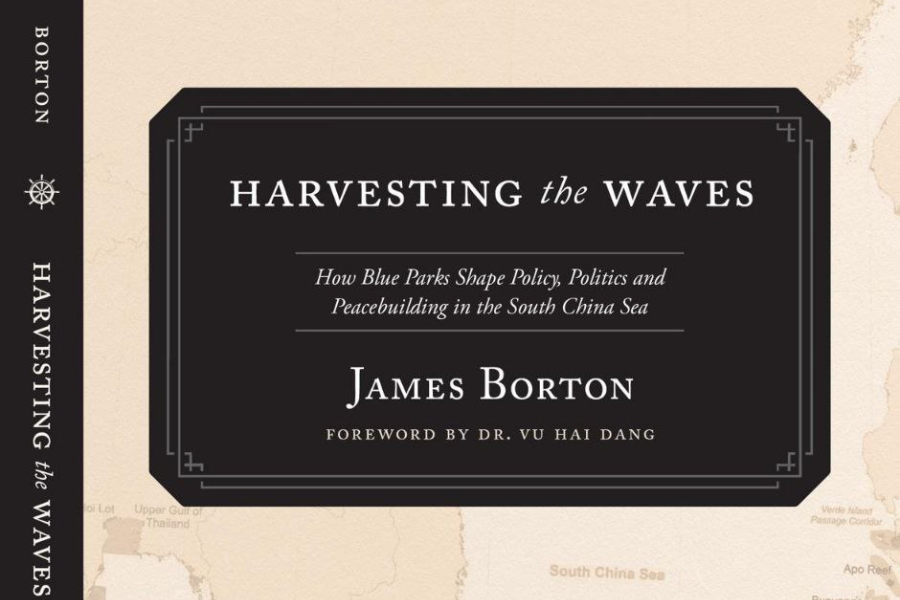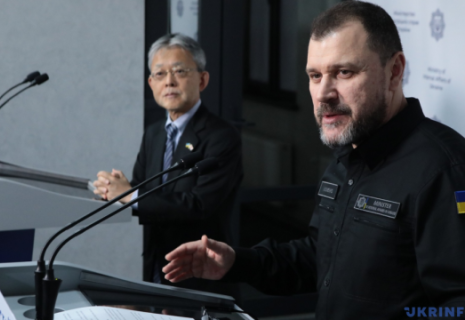
Harvesting the Waves: Call for Regional Science Cooperation in Troubled Waters
By Peter M. Tase
In a deeply fractured international order comprised by brutal armed conflicts from Ukraine to Yemen and from Cameroon to Israel; biodiversity protection and marine protected areas in South China Sea are of paramount importance for the earth’s sustainable future as the economic well being of upcoming generations will depend on it.
In such a chaotic, fragmented currents of geopolitical interests, James Borton’s highly acclaimed book “Harvesting the Waves: How Blue Parks Shape Policy, Politics and Peacebuilding in the South China Sea” elevates a pragmatic approach towards building new initiatives that will foster greater cooperation between all coastal nations in the South China Sea. Borton’s impeccable work and research on marine protected areas serves as a solid foundation for the protection of biological diversity, a strategic asset for the regional vibrant economies, including the Philippines, Indonesia, Malaysia, Cambodia, Thailand and Vietnam.
This book opens new grounds for a more effective regional cooperation mechanism focused on environmental economics, and implementation of a legal framework that would ensure the protection of marine areas.
Every nation located in the geography of South China Sea is encouraged and obliged to use Borton’s book as a beacon of climate diplomacy as well as a magna carta for preventing overfishing, stopping large scale clam harvesting and denouncing the illegal operations of People’s Republic of China in dredging islands for territorial expansionism objectives.
The author, a foreign correspondent with over three decades of reporting in Southeast Asia on environmental policy matters, is a non-resident senior fellow at Johns Hopkins University Strategic Advanced International Studies (SAIS) Foreign Policy Institute, who understands that half of the fishing vessels in the world sail through the contested South China Sea deep waters.
According to Sebastian C.A. Ferse, a trained coral reef ecologist with over 10 years of research experience in Southeast Asia: “The construction activities have impacted reefs on a scale unprecedented in the region, and according to a 2016 study analyzing satellite imagery have directly destroyed up to 60% of the shallow reef habitat of the affected reefs. Construction-related sedimentation and turbidity are visible from available imagery. Reefs subjected to direct land reclamation have disappeared entirely. Reefs subjected to dredging in order to create landfill will have lost their complex structure that was built over centuries to millennia.”
Against this backdrop, James Borton offers the global community a compelling case for international collaboration to confront the growing challenges of transboundary marine conservation. Drawing on lessons from initiatives such as the United Nations’ Mediterranean Action Plan—where regional cooperation among 21 coastal nations has helped curb pollution, restore fisheries, and protect biodiversity—Borton argues for similar science-driven frameworks in the South China Sea. His new work presents a pragmatic blueprint for expanding marine protected areas, fostering frank dialogue among scientists and policymakers, and advancing a shared commitment to create more “blue parks” across contested waters.
The Kumming – Montreal Global Biodiversity Framework would be incomplete unless Borton’s valuable concepts are tackled in its official manifests.
The vast deep-water stretches from Singapore and the Strait of Malacca in the southwest to Taiwan’s Strait in the northeast are renowned for their atolls, coral reefs, and islets—an intricate ecosystem now caught in the crossfire of competing sovereignty claims. James Borton argues that the region urgently needs an environmental preservation mechanism—a genuine regional roundtable—to rise above the geopolitical disputes that have long fueled mistrust and confrontation. As territorial tensions persist, oceanographic research has been sidelined, ecological security continues to erode, and the economic foundations that sustain more than 625 million people across the ten ASEAN nations are increasingly at risk.
Today’s mainstream media and global discourse are saturated with partisan narratives and political noise, often sidelining the urgent realities of habitat destruction, ocean pollution, and climate-driven threats such as acidification. As major powers race to secure critical and scarce minerals, environmental stewardship has slipped down the global agenda, leaving fragile marine ecosystems exposed to unchecked exploitation and decline. James Borton’s latest work calls on U.S. intelligence leaders and Washington’s foreign policy establishment to recognize that environmental degradation is not a distant concern—but a central factor in regional stability and global security.
This is a book with clear urgency and purpose. For the United States, advancing a science-based strategy and supporting well-managed Marine Protected Areas isn’t just an environmental imperative—it’s an economic and geopolitical one. These frameworks can drive sustainable growth, strengthen ecological resilience, and reinforce America’s credibility on the world stage. In Harvesting the Waves, James Borton argues that MPA principles should stand at the heart of Washington’s national security calculus when engaging with China and other nations across the turbulent waters of the South China Sea. His message is unmistakable: if science leads, diplomacy and stability will follow.
Peter Marko Tase is the founder of Paraguay Economic Forum in Wisconsin, and author and of six books and dozens of articles on International Politics, Geostrategy in Eurasia and Latin American Studies. He is a Distinguished Fellow of International Conference on Business, Economics and Technology of Universidad Gran Asunción – UNIGRAN in Paraguay.
























